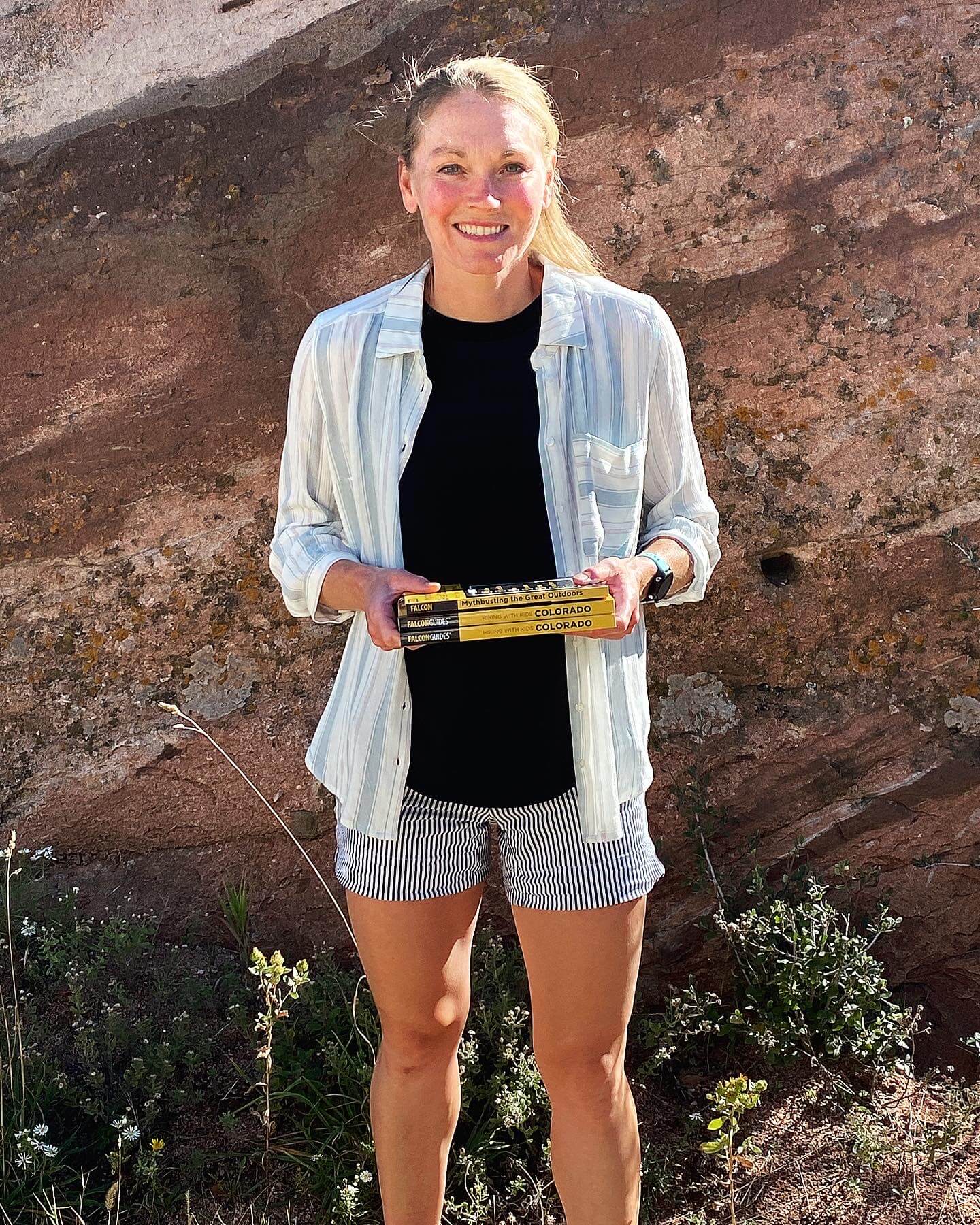Do you believe in Bigfoot? Aliens? Magic?
An interview with the creator of the Wild Thing series of Middle Grades books, exploring out-there topics through scientific inquiry
An interview with the creator of the Wild Thing series of Middle Grades books, exploring out-there topics through scientific inquiry
I learned about Denver author Laura Krantz’s engaging middle-grade books in 2023, at a local journalist get-together a friend hosts. When I mentioned that I’d recently started working on a new guidebook for families, Exploring Colorado with Kids, Krantz’s husband, journalist and podcaster Scott Carney, couldn’t help bragging about his partner’s latest project, a three-book nonfiction series inspired by her acclaimed adult podcast, Wild Thing, a narrative, serialized show about weird topics that capture our imagination.
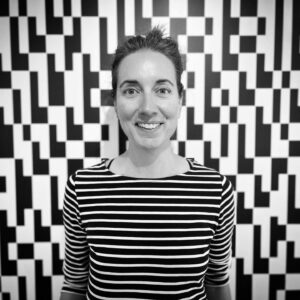
Laura Krantz
Is bigfoot real? Do aliens exist? Does magic actually work? In her books for young readers, Krantz uses the scientific method and her well-honed journalism skills to help kids ages 8 to 13 explore the world around them while maintaining a healthy sense of curiosity and learning how to determine science fact from science fiction.
Before I’d made it home from that 2023 journalist party, I’d ordered Krantz’s first two books— The Search for Sasquatch and Is There Anybody Out There? and I’d also made a note in my iCal: October 1 2024—Look for Do You Believe In Magic?
Krantz’s work has appeared in Smithsonian magazine, Popular Science, Newsweek and many other national publications. While her books are marketed to kids, I have thoroughly enjoyed reading all of them, and I was excited to learn more about the author and her writing process during a recent interview.
Jamie Siebrase: Before we get into your creative work, fill me in on your Colorado connection. Did you grow up here?
Laura Krantz: I moved to Colorado in 2014, for the Ted Scripps Fellowship in Environmental Journalism at CU Boulder. I grew up in Idaho but left in 1996 and had been living in DC, Europe and LA. I’d missed being near mountains and snow and easy proximity to the outdoors, so it was great to come back.
JS: You’ve hosted a popular science podcast, Wild Thing, about strange and supernatural happenings, and you’ve also written books on the topic. Which came first, the chicken or the egg?
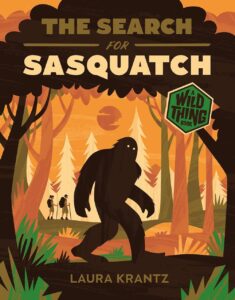
Purchase from you local independent bookseller or at bookseller.org.
LK: I did the podcast first, and I wasn’t thinking about kids even the tiniest bit. The first season of the podcast came out in 2018, and the second and third seasons aired in 2020 and 2022. Before long, I started hearing from parents and then from teachers who used elements of the show in the classroom. When I talked to my agent, she mentioned that there’s a dearth of middle-grade nonfiction that’s both fun and informative, and she thought topics I’d explored on the podcast might fit nicely into that space. I eventually landed a three-book deal with Abrams Kids, and the books have largely mirrored the podcast.
JS: Yes, but I noticed that your third season of the podcast is about nuclear energy, and when I read your third Wild Thing book, it was all about magic.
LK: That’s right. The third podcast is all about a nuclear accident that happened in Idaho, near my hometown. When the SL-1 nuclear reactor blew up in 1961, it killed three young military men, and spread radiation over thousands of acres of land, leaving the government and the military scrambling for answers. It’s still the deadliest nuclear reaction accident in U.S. history, and I grew up right where it happened and didn’t even know about it.
JS: That’s insane.
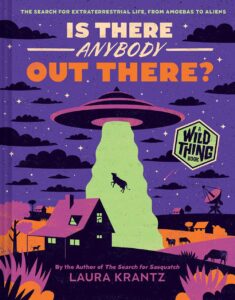
Purchase from your local independent bookseller or at bookshop.org.
LK: It is, but my editor wasn’t sure this topic would be right for children, so we went a different route for the third book. I’m always chatting up my friends’ kids, trying to learn about what they’re reading, and I was seeing a theme surrounding witches, warlocks, Harry Potter, and dragons. I realized there’s a huge fascination with magic right now, and I wondered if kids today knew about the history of things like alchemy and potions. While the pursuit of alchemy didn’t pan out from a chemistry perspective, the precision of historical experiments ends up being the foundation for chemistry. I found that really interesting.
JS: Spoken like a true journalist! Do all of your ideas come from a place of curiosity?
LK: Actually, the bigfoot podcast, which led to the bigfoot book, came out of me learning that I had a relative who was a scientist and also the country’s preeminent academic expert on bigfoot. I suspended my disbelief and tried to look at the evidence, coming at the topic from a scientific perspective.
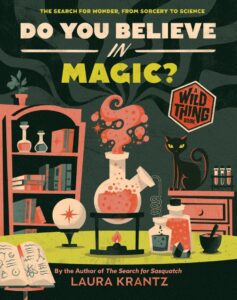
Purchase from your local independent bookseller or at bookshop.org.
JS: The topics you write about are captivating, but what I really love about your books is the quality of the writing. I think I enjoyed reading the series every bit as much as my kids did. Was that all part of your grand plan?
LK: I love hearing that, and I think that’s kind of the point: Let’s make it so parents enjoy reading with their kids.
JS: I also appreciated the tone. The content is age-appropriate, and at the same time you treat young readers like the intelligent, inquisitive people they are. You don’t “talk down” to your audience. How do you manage to strike this perfect balance?
LK: I don’t have kids, but my feeling is that kids are people, and they’re usually pretty curious about the world, and so I’m going to answer questions in a really open, accessible way that facilitates deep learning. My goal is never to “dumb down” information. As a podcaster, though, I’m used to writing for the ear, and I think being in that habit of keeping things streamlined and simple worked for a younger audience.
JS: I’m always interested in the habits of other writers. Can you describe your writing life?
LK: Everything I learned about writing I learned from Scott Carney [Krantz’s husband]. His philosophy is simple—500 words a day. I really do try to stick by that when I’m working on a project. I come up with a good, solid outline, knowing that it may change as I get new information, and then I chip away at my 500 words a day. Do this, and you’ll eventually have a book. It’ll be a pile of vomit, and you’ll have to shape it into something better, but you can’t do any of the editing, marketing, publicity, or cover art until you actually have the book written.
JS: Any plans for a fourth season of the podcast?
LK: I’m trying to figure that out. My podcast is a one-narrative season series with nine episodes of a highly produced story—as opposed to an interview podcast that’s easy to churn out week after week. Narrative podcasts take more to put together, but I really like them from a storytelling perspective. I do freelance contract work with The Lever, which is a national news organization based in Denver. I worked with them on a podcast called Master Plan; the first season is about money in politics, and it is excellent. I’ll be working on a second season, but I can’t talk about the content yet.
JS: What about new books? Anything we should keep an eye out for?
LK: I haven’t really talked about this publicly yet, but I’m working on a science fiction novel. I’m still trying to get the messy pile of barf on the page.
JS: We’ll be looking forward to reviewing that when it’s ready!
Based near Denver, Jamie Siebrase is a journalist and the author of several Falcon guidebooks, including Hiking with Kids Colorado, Exploring Colorado with Kids and Mythbusting the Great Outdoors. She’s currently writing a guided workbook for those interested in using nature to access emotional healing.
Click here for more from Jamie Siebrase.
